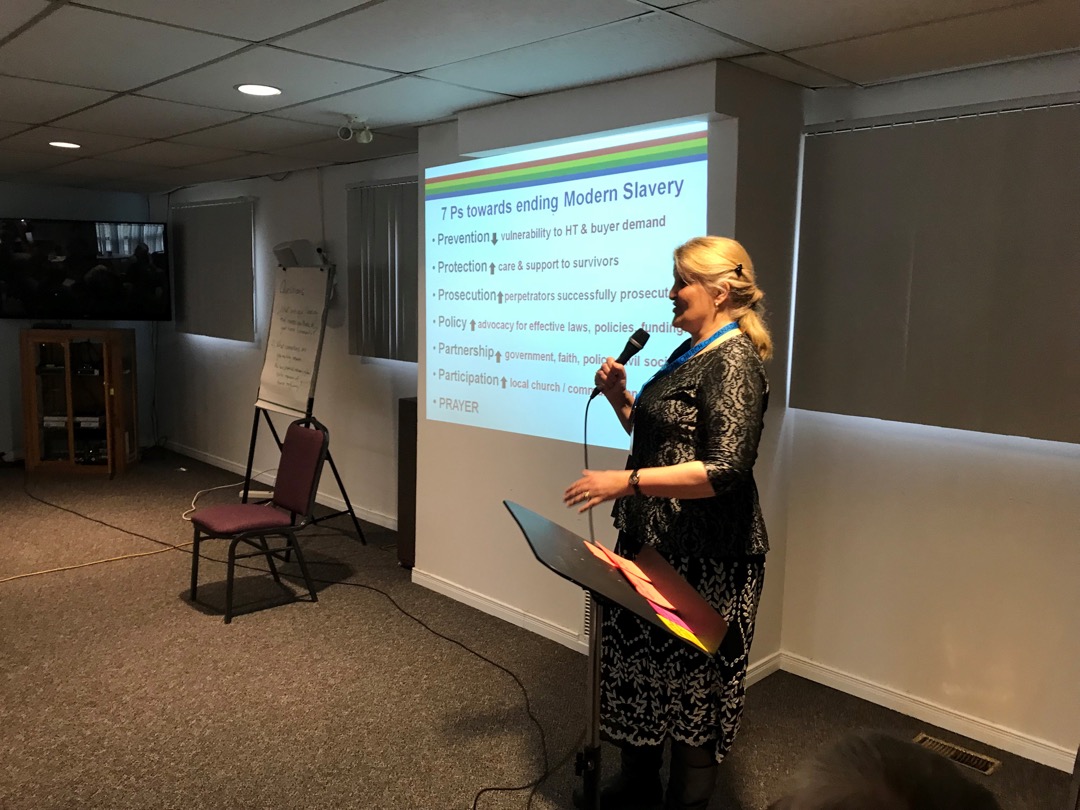The scourge of human trafficking and modern slavery in Ontario was the focus of learning, planning for action and prayer from April 11 to 13 at the Manresa Centre in Pickering.
Representatives from seven dioceses composing the Ecclesiastical Province of Ontario met, including four from Niagara diocese.

We were deeply moved as women and men shared their personal stories of victimization.
We heard horrific accounts of luring, grooming, coercion, manipulation and exploitation of girls and boys for sex trafficking. We learned from migrant and domestic workers who were trapped, essentially as slaves, by unscrupulous employers and agencies.
These personal accounts left me sad, angry, disgusted and in despair.
All was not darkness.
The victims’ courage in sharing their stories, and their determination to save others from experiencing the hell that they have known, inspired.
Examples of local efforts to combat human trafficking and modern slavery, encouraged.
Tales of agencies, programs and government initiatives already in place and their openness to partnering with people of faith brought hope.
A Jesuit retreat centre was an ideal location for the consultation. The spiritual atmosphere of the place lent support to a common thread that God and personal faith sustained victims when people, the church and “the system” failed them.
As the diocesan representatives gathered for prayer and bible study, we felt the need to confess our failings and to acknowledge our dependency upon God in addressing human trafficking and modern slavery. Forgiveness could be found in that place.
As we worshipped in a beautiful chapel decorated for Easter, I was surprised by hope and joy with the assurance that God is fulfilling the promise of new creation.
How might you engage freedom and join with Anglicans against human trafficking and modern slavery?
The consultation offers an effective approach involving three interlaced components — we are called to learn, pray and act.
An introduction and opportunities for deeper learning can be found through the Provincial Anti-Human Trafficking Coordination Office, the Canadian Centre to End Human Trafficking and our national church webpage. Such learning will emerge from, and illicit, prayer and action.
Through prayer, theological reflection and bible study we grow in our love of God and for what God loves. Our love for others, even those that we have yet to meet — like those who are or have been trafficked — deepens.
Reflecting upon our baptismal promise to guard and protect the dignity of every person, compels us to respond. Our bold proclamation that God’s power working in us can do infinitely more than we can ask or imagine is confirmed when we act.
I am just beginning to explore the ways in which I am being call to act.
Writing this article is one such action.
I will be more attentive to signs of trafficking and modern slavery.
I will connect with people already working to combat this scourge.
Finally, providing examples of healthy human relationships is something each of us can do to foster a society more resistant to the evils of human trafficking and modern slavery.
What are you being called to do?
The Reverend Canon Doctor Michael Mondloch is Social Justice, Community Engagement and Outreach Coordinator for the Greater St. Catherines Area.
Resurrection of Hope in Thundering Waters